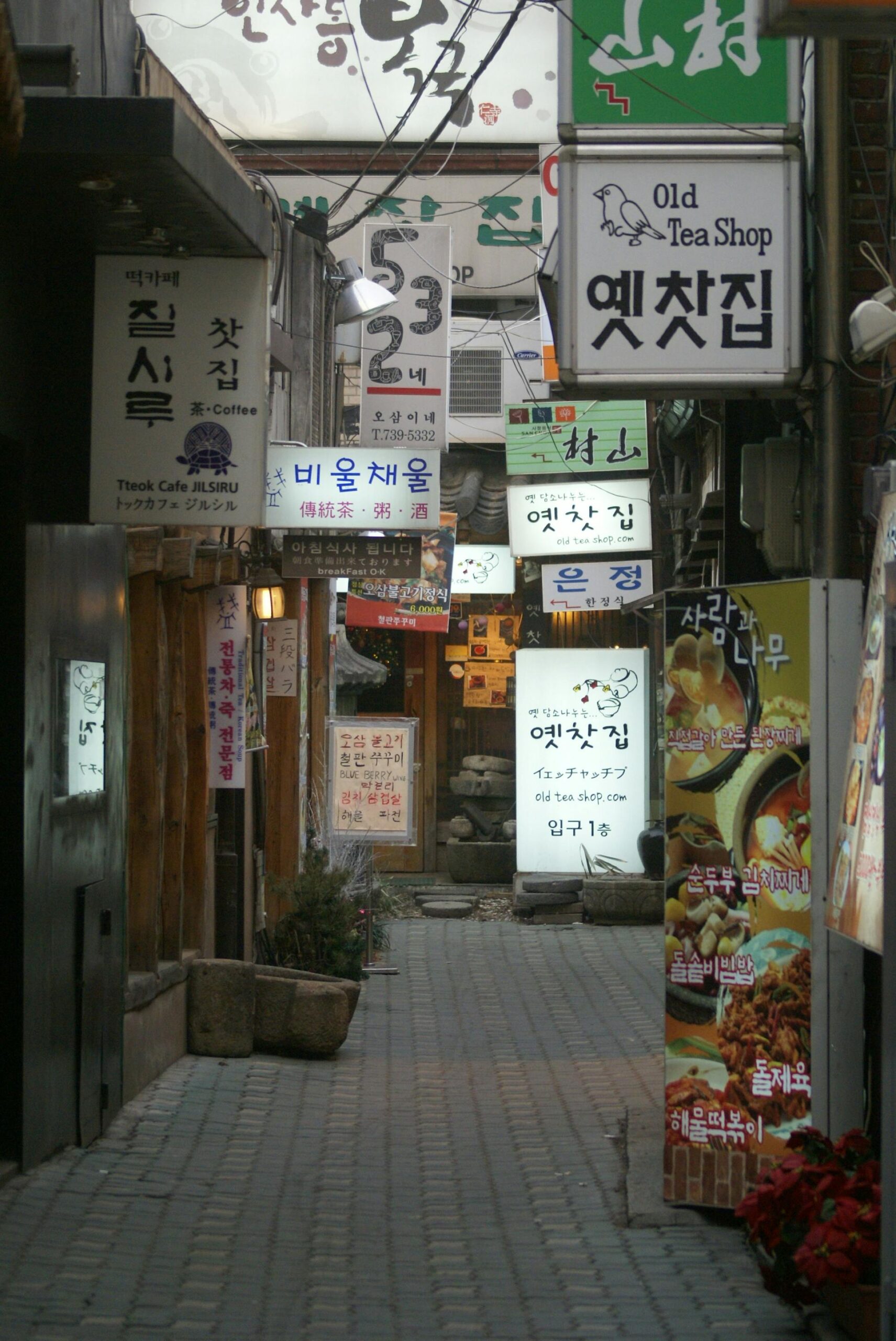Have you ever wondered what hotel staff secrets are behind those truly unforgettable stays? From the moment you step into a luxurious lobby to the time you check out, there’s a hidden world of expert techniques and little-known tricks that hotel employees use to create magical guest experiences. This article will dive deep into the fascinating realm of behind-the-scenes hotel staff strategies, revealing how they transform ordinary hotel visits into extraordinary memories that keep guests coming back for more. Curious about how your favorite hotels always seem to anticipate your needs perfectly? You’re about to find out!
Hotel staff play a crucial role in shaping your entire stay, going far beyond just delivering towels or answering questions. They’re trained in subtle communication skills, personalized service tactics, and even emotional intelligence to make guests feel genuinely valued and pampered. Ever noticed how the front desk agent remembers your name or how housekeeping leaves thoughtful touches that brighten your day? These are no accidents — they’re part of a carefully crafted system designed to enhance every aspect of your visit. By unlocking these exclusive hotel employee techniques, you’ll gain insight into what really makes a hotel stay stand out in today’s competitive hospitality industry.
In today’s world of luxury travel trends and rising guest expectations, understanding the secrets hotel staff use to wow customers can also help you become a more savvy traveler. Whether you’re booking a boutique hotel or a five-star resort, knowing what goes on behind the scenes will change how you appreciate your next trip. So, keep reading to discover the powerful hospitality hacks and insider tips that hotel staff swear by to create those unforgettable, five-star experiences every time!
7 Insider Hotel Staff Secrets That Turn Ordinary Stays into Unforgettable Experiences
When you check into a hotel, you often think about the room, the view, or the amenities. But what if the real magic behind an unforgettable stay comes from behind the scenes? Hotel staff, from front desk agents to housekeeping, have secrets that turn ordinary hotel visits into experiences you remember for years. These little-known tricks and insider knowledge are not often shared with guests, but they shape how you feel and remember your stay. Let’s dive into 7 insider hotel staff secrets that will surprise you and maybe change how you book your next trip, especially here in New York.
1. The Power of Personalization: Staff Remember Your Preferences
Hotel employees constantly notice patterns about returning guests, even if you think you’re flying under the radar. Did you know that many hotels keep informal notes about your preferences? For example:
- Your favorite room or floor
- Preferred pillow type or extra towels
- Beverage choices from the minibar or room service
This personalization isn’t just fancy marketing talk. Front desk and concierge staff often share info internally to make sure when you come back, your stay feels like home. This practice goes back decades, especially in family-run boutique hotels in New York, where building relationships is key to survival.
2. Upgrades Are Often About More Than Just Availability
Many travelers think room upgrades depend only on vacancy. While availability is crucial, staff often base upgrades on subtle factors like:
- How you treat them (politeness goes a long way)
- Whether it’s a special occasion (birthdays, anniversaries)
- Your loyalty status or even the time of year
In fact, hotel workers sometimes suggest upgrades among themselves for guests they want to impress or reward. This kind of behind-the-scenes communication creates those surprise moments where your room suddenly feels a lot bigger or has a better view than you expected.
3. Housekeeping Knows More Than You Think
Housekeepers are the unsung heroes of hotel stays. Besides cleaning, they often become unofficial “eyes and ears” for the property. They notice when something’s broken, or if a guest leaves behind valuables. Sometimes, they even leave little surprises for guests, like a neatly folded note or a small chocolate on the pillow, especially in luxury hotels.
Historical context: The tradition of turndown service with chocolates started in European hotels in the early 20th century and has been adopted widely, including many high-end New York hotels. It shows care and attention to detail that guests might not expect from just cleaning staff.
4. Concierge Staff Can Unlock Hidden Local Gems
The concierge isn’t just a glorified receptionist. They often have insider knowledge that you won’t find on popular travel websites. Whether it’s a secret rooftop bar, a lesser-known museum exhibit, or a reservation at a fully booked restaurant, concierge teams use their local connections to enhance your visit.
Practical example: In New York, a concierge might get you a last-minute ticket to a Broadway show or recommend a neighborhood deli with the best pastrami sandwich, something tourists often miss.
5. Early Check-In and Late Check-Out Are Possible More Than You Think
Many guests don’t realize that early check-in or late check-out aren’t always rigid rules but flexible options depending on the day’s occupancy and staff discretion. Front desk workers often can accommodate these requests if you ask nicely and if the hotel isn’t fully booked.
This flexibility has historical roots in the hospitality industry’s focus on customer satisfaction, evolving over the years as travelers expected more convenience. Some hotels even quietly advertise this flexibility as a perk for guests who engage positively with the staff.
6. Special Requests Are Usually Met if You Ask Politely
From extra pillows to arranging for a surprise cake, hotel staff want to make your stay memorable. But these requests go smoother when guests are polite and reasonable. Staff often go above and beyond to fulfill special requests, especially if they feel appreciated.
Bullet-point list of popular guest requests often fulfilled:
- Room decoration for celebrations
- Late-night snacks or drinks
- Additional toiletries or amenities
- Arranging transportation or tours
These services reflect the hotel’s dedication to guest satisfaction and show how staff can create a personalized experience beyond what’s advertised.
7. The Importance of Feedback: How Staff Use Your Reviews
You might think feedback only helps hotels improve, but it also plays a role in how staff treat returning guests. Positive reviews about a certain employee can lead to better service or even special treatment next time you visit. Conversely, constructive criticism helps hotels fix issues before they escalate.
Comparison: In smaller boutique hotels, feedback often creates a direct personal connection between guest and staff, while in big chain hotels, it might go through several management layers but still influences overall service quality.
Hotels in New York and around the world have their own unique ways to create memorable stays, but these insider secrets show how much hotel staff contribute to the magic. Next time you
How Hotel Staff Use Personalized Service to Create Memorable Guest Moments
How Hotel Staff Use Personalized Service to Create Memorable Guest Moments
When you check into a hotel, you might just expect a clean room, a comfy bed, and maybe a friendly smile from the receptionist. But behind the scenes, hotel staff works hard to craft experiences that guests remember long after they leave. Personalized service is the secret ingredient that turns ordinary stays into unforgettable ones. So, how do hotel employees pull this off? Let’s dive into some hotel staff secrets and see how they make every visit special.
Why Personalized Service Matters in Hotels
Personalized service means tailoring the guest experience according to individual preferences, needs, and sometimes even moods. It’s not just about offering a standard room and basic amenities, but about understanding what makes each guest feel valued. Studies show that guests who receive personalized attention are more likely to return and recommend the hotel to others. In today’s competitive hospitality industry, standing out means going beyond the usual.
Historically, luxury hotels have been pioneers in personalizing guest stays. From the grand hotels of the early 20th century to modern boutique properties, the goal has always been to make guests feel unique. Nowadays, technology helps a lot but the human touch remains irreplaceable.
How Hotel Staff Gather Guest Information
One might think that personalization requires complicated systems, but often, it starts with simple conversations. Front desk clerks and concierges ask questions about the purpose of the trip, special occasions, or preferences like room temperature and pillow type. Sometimes, guests voluntarily share details while booking or during check-in.
Hotels also use loyalty programs and guest history databases to remember past visits and preferences. For example, a guest who prefers a quiet room on a high floor might get that automatically next time they book. This information allows staff to anticipate needs without asking repeatedly.
Examples of Personalized Service in Action
- Greeting guests by name, sometimes even before arrival if the hotel has prior notice.
- Remembering favorite drinks or snacks and having them ready in the room.
- Offering custom itinerary suggestions based on guest interests, like art galleries for culture lovers or jogging routes for fitness fans.
- Noticing special occasions such as birthdays or anniversaries and surprising guests with complimentary cake or decorations.
- Adjusting room settings ahead of arrival, such as lighting, music, or temperature preferences.
These small touches might seem minor but create big impressions.
Hotel Staff Secrets Revealed: Behind the Scenes
Hotel employees have their own little tricks to make guests feel special. Here are some insider secrets:
- Active Listening: Staff often pick up on subtle hints during conversations. When a guest mentions they are tired, the staff might offer a late check-out or suggest a relaxing spa treatment.
- Flexibility: Hotel policies sometimes bent in favor of guest satisfaction. For example, allowing early check-in or late check-out without extra charges.
- Team Communication: Staff share notes about guest preferences across departments. Housekeeping knows to leave extra towels, and restaurant staff might prepare a favorite dish.
- Problem Solving: When issues arise, staff try to fix them quickly and with empathy. This can turn a negative experience into a positive one.
- Personal Touches: Handwritten welcome notes, remembering a guest’s pet name, or even recalling a past conversation from a previous stay.
Practical Ways Hotels Train Staff for Personalized Service
Many hotels invest in training programs that emphasize empathy and attentiveness. Some key training topics include:
- Understanding cultural differences and respecting customs.
- Developing communication skills for better guest interactions.
- Learning to observe and remember guest preferences.
- Handling complaints gracefully and finding creative solutions.
- Collaborating between departments to ensure seamless experiences.
Hotels sometimes use role-play scenarios to prepare staff for real-life situations where personalization can make a big difference.
Comparison: Personalized Service vs. Standard Service
| Aspect | Personalized Service | Standard Service |
|---|---|---|
| Guest Interaction | Tailored conversations based on guest info | Generic greetings and scripted replies |
| Room Preparation | Customized amenities and settings | Uniform setup for all rooms |
| Problem Resolution | Flexible and empathetic | Strict adherence to policies |
| Guest Engagement | Proactive suggestions and offers | Reactive, only when guest asks |
| Guest Loyalty Impact | Higher likelihood of repeat visits | Lower repeat guest rate |
Clearly, personalized service drives guest satisfaction higher.
The Role of Technology and Human Touch
Nowadays, many hotels use apps and AI to gather guest preferences and automate some services. But these tools can’t replace the warmth and intuition of hotel staff. A smiling employee who remembers your name or preferences creates emotional connections that no machine can replicate.
For instance, a digital concierge might suggest local restaurants, but a knowledgeable staff member can recommend hidden gems based on personal experience and guest taste.
Why Hotel Staff Love Personalized Service Too
It’s not just guests who benefit
Behind the Scenes: What Hotel Staff Don’t Tell You About Exceptional Customer Care
Behind the Scenes: What Hotel Staff Don’t Tell You About Exceptional Customer Care, Hotel Staff Secrets Revealed: How They Create Unforgettable Stays
When you check into a hotel in New York, it often feels like everything is just working perfectly. From the smooth check-in to the spotless rooms, and the friendly smiles at the front desk, it might seem like magic. But there is a lot going on behind the scenes that most guests never get to see. Hotel staff, the unsung heroes of your stay, have many little secrets and tricks they use to make your visit unforgettable. These are the things they don’t usually tell you, but they play a huge role in creating exceptional customer care.
The Invisible Work of Hotel Staff
Most people think hotel staff just clean rooms and hand out keys, but it’s way more complicated. Behind every smooth guest experience, there are hours of preparation, communication, and even improvisation. For example, housekeeping might know what time you prefer your room cleaned, but they also have to juggle unexpected requests, lost items, and last-minute room changes.
Front desk employees aren’t just checking you in and out. They constantly multitask, dealing with phone calls, booking issues, and sometimes even calming down frustrated guests. They have to remember hundreds of guest preferences, from pillow types to dietary restrictions, often without any notes. This knowledge is a secret weapon in making your stay feel personalized.
How Hotel Staff Creates Unforgettable Stays
One of the biggest secrets about hotel staff is that they often go beyond what’s required. They notice small details that guests overlook, like the way you hold your coffee cup or the time you come back from sightseeing. This allows them to anticipate needs before you even ask. For example, if you seem tired, they might discreetly offer a late check-out or suggest a relaxing spa treatment.
Hotels in New York have to compete fiercely, so they train their employees not just in service, but also in emotional intelligence. Staff learn how to read body language and tone, which helps them tailor their responses perfectly. This skill is one reason why many visitors feel like the hotel ‘just gets them’ even if they never say a word.
Practical Examples of Staff Secrets
Here are few examples of what hotel staff do to make your stay special without you noticing:
- Room Preparation: Before guests arrive, staff will often “stage” the room by adjusting lighting and temperature to feel welcoming.
- Personalized Greetings: Receptionists might remember your name or your previous visit details to create a friendly atmosphere.
- Handling Complaints Quietly: Instead of making a fuss, employees often solve problems discreetly so you don’t feel the disruption.
- Upgrades and Perks: Sometimes, staff can slip in a room upgrade or complimentary service if they sense you deserve a little extra.
- Local Tips: Front desk workers usually have secret knowledge about the best local spots, not found in guidebooks.
A Brief Look at the History of Hotel Customer Care
Customer service in hotels has evolved a lot over the centuries. Back in the 19th century, hotels were mainly inns providing basic shelter. It wasn’t until the early 20th century that luxury hotels started emphasizing personalized care, with bellhops, concierges, and valets becoming prominent. New York, being a major city, was often at the forefront of these changes.
The concept of “customer experience” really took off in the late 20th century with the rise of international travel and online reviews. Hotels realized that happy guests meant more business. As a result, employee training shifted from simple tasks to emotional intelligence, problem-solving skills, and anticipating guest needs.
Hotel Staff vs. Automated Systems: What’s Better?
Nowadays, many hotels use automated check-in kiosks and digital concierge apps. While these technologies improve speed and efficiency, they can’t replace the human touch. Hotel staff bring empathy, creativity, and understanding that machines lack. For example, a robot won’t notice if you look stressed or tired, but a good hotel employee will.
Here’s a quick comparison:
| Aspect | Hotel Staff | Automated Systems |
|---|---|---|
| Personalization | High, based on human interaction | Limited, based on algorithms |
| Problem Solving | Flexible and creative | Rule-based, limited |
| Availability | Limited by shifts and capacity | 24/7 service |
| Emotional Support | Present and empathetic | None |
| Efficiency | Sometimes slower due to human factors | Fast and consistent |
Tips to Get the Best Treatment from Hotel Staff
If you want your stay to be more memorable, here are some practical tips to connect better with hotel staff:
- Greet them with a smile and use their name if you know it.
- Ask politely for local recommendations or hidden gems.
- Mention any
The Ultimate Guide to Hotel Staff Tips for Enhancing Your Stay Like a VIP
When you book a hotel stay, you probably expects a comfortable room, maybe a pool or gym, and friendly staff. But what if I tells you there’s more to the hotel experience than just what meets the eye? Hotel staff have secret ways that make your stay unforgettable, and you can actually enhance your experience like a VIP by knowing some insider tips. This ultimate guide reveals how hotel employees work behind scenes, their little tricks, and how you can interact with them to enjoy your vacation or business trip better than ever before.
Why Hotel Staff Are More Important Than You Think
Hotel staff do much more than just check you in and out. They are the backbone of your entire stay, from housekeeping to concierge, front desk to bellhops. Their goal is to make your visit smooth, comfortable, and memorable. Historically, hotels evolved from inns and lodges where personal service was key. Nowadays, even the largest hotel chains try to preserve that human touch, using staff to customize guest experiences.
Without hotel employees, your booking would just be a reservation on a website. They handle everything from room upgrades to special requests, and sometimes they even create moments you don’t expect, like surprise treats or complimentary services. But these wonders don’t happen by chance. Hotel staff use skills, knowledge and sometimes a little magic to turn ordinary stays into something special.
Hotel Staff Secrets Revealed: How They Create Unforgettable Stays
What do hotel workers know that you don’t? Here are some interesting facts and secrets they use daily:
- Personalized Attention: Staff try to remember guest preferences and names. If you mention you like a quiet room or extra pillows, they usually note it down for your next visit.
- Room Upgrades: Don’t be shy to ask politely at check-in if upgrades are available. Sometimes, if the hotel isn’t fully booked, staff can put you in a better room at no extra cost.
- Local Knowledge Sharing: Concierges often have insider info about hidden gems in the city that you won’t find on travel websites.
- Special Occasion Recognition: If you tell reception about a birthday or anniversary, they might surprise you with a small gift or decoration.
- Problem Solving Skills: When issues arise, staff use their training to fix problems quickly, often offering compensation or alternate solutions.
Practical Tips to Enhance Your Stay Like a VIP
You don’t need to be a celebrity to get top treatment in a hotel. Here some practical advice to help you connect with staff and improve your experience:
- Be Polite and Friendly: Simple kindness goes a long way. Hotel employees remember guests who treat them well.
- Communicate Your Needs Clearly: If you want a late checkout or specific room, ask upfront rather than waiting until the last minute.
- Use the Concierge Wisely: Instead of Googling everything yourself, ask the concierge for recommendations on restaurants, tours, or local events.
- Tip Appropriately: While tipping customs vary, leaving a small tip for housekeepers or bellhops shows appreciation and might make them go extra mile.
- Join Loyalty Programs: Many hotels reward frequent guests with perks like free breakfasts or room upgrades.
- Mention Special Occasions: Let staff know if you celebrating something; they often like to help make it memorable.
- Offer Feedback: Positive feedback encourages staff to maintain high standards, and constructive criticism helps them improve.
Comparing Hotel Staff Roles: What They Do For You
Understanding different staff roles helps you know who to approach depending on your needs. Here’s a simple outline:
| Role | Responsibilities | When to Contact |
|---|---|---|
| Front Desk | Check-in/out, room assignments | Arrival, departure, room issues |
| Concierge | Local info, bookings, recommendations | Planning activities, dining options |
| Housekeeping | Room cleaning, amenities restocking | Room cleanliness and supplies |
| Bellhop | Luggage assistance, directions | Arrival, departure, moving bags |
| Room Service | Food and beverage delivery | Meals, snacks in room |
| Maintenance | Fixing technical problems | Broken fixtures, heating/cooling issues |
Knowing who does what can save you time and frustration during your stay.
Historical Context: How Hotel Service Evolved
Hotel staffing and service standards have changed a lot over time. In the 19th century, luxury hotels began employing large numbers of staff to provide personalized care to wealthy travelers. This was the era when the term “concierge” became popular, referring to someone who handled guests’ special needs. Over decades, hotels expanded services to include spas, restaurants, and technology support, requiring more specialized staff.
Today, hotels use a combination of human service and automation, but staff remain crucial for providing warmth and adaptability that machines can’t replicate. The best hotels pride themselves on their employees’ ability to create a welcoming atmosphere,
Why Hotel Staff Training Matters: Secrets to Consistently Amazing Guest Experiences
In the bustling world of hospitality, especially in a vibrant city like New York, where tourists and business travelers flood every corner, the role of hotel staff cannot be overstated. Why hotel staff training matters is a question that every hotel manager should be asking, yet many overlooks. The secret to consistently amazing guest experiences often lies hidden behind the scenes, in the way staff are trained and empowered. Without well-prepared employees, even the most luxurious hotels can fail to meet guest expectations, leading to disappointing stays and bad reviews.
Why Hotel Staff Training Matters
At its core, hotel staff training is not just about teaching employees how to do their jobs, but also how to create memorable moments for guests. Training helps staff understand the importance of their role in the guest experience, from the front desk to housekeeping and food services. When staff knows what to do, and how to do it well, guests feel valued and cared for.
Historically, the hospitality industry has evolved dramatically. In the early 20th century, hotels were more formal and service less personalized. But as competition increased and customer expectations rose, the need for well-trained staff became critical. Today, hotels invest heavily in staff training programs to build loyalty and differentiate themselves from competitors.
Some reasons why training is crucial:
- Ensures consistency in service across all shifts and employees.
- Helps staff handle unexpected situations with confidence.
- Improves communication within the team and with guests.
- Increases staff morale and reduces turnover.
- Directly impacts guest satisfaction and reviews.
Without proper training, employees might not know how to resolve conflicts, anticipate guest needs, or even use the hotel’s technology systems efficiently. These gaps can cause slow service, mistakes, and ultimately lost customers.
Hotel Staff Secrets Revealed: How They Create Unforgettable Stays
Have you ever wonder how some hotels manage to feel warm and welcoming every single time? It’s not just luck or fancy decor. Behind the scenes, the hotel staff uses well-honed skills and secret techniques learned through training and experience.
Here are some secrets hotel employees use to make a stay unforgettable:
-
Personalization is Key
Staff are trained to remember repeat guests’ preferences or to pick up on little clues during interactions. For example, if a guest mentions they love a particular type of coffee, staff may surprise them with it the next day. This kind of personal touch creates a sense of belonging. -
Anticipating Needs Before They Arise
Good staff know how to read body language and listen carefully. If a guest looks tired, a concierge might suggest a spa appointment without being asked. Anticipation makes guests feel cared for on a deeper level. -
Problem-Solving on the Fly
When something goes wrong — a reservation mix-up, a noisy neighbor — trained hotel staff can quickly offer solutions that satisfy the guest, like room upgrades or discounts, preventing negative reviews. -
Teamwork Behind the Scenes
A hotel’s success depends on seamless cooperation between departments. Training sessions often include team-building exercises so staff understand how their roles interconnect, ensuring smooth operations. -
Attention to Small Details
Details like a warm greeting, remembering names, or ensuring the room’s cleanliness exceed expectations. Staff are often coached to observe and act on these small but impactful details.
Practical Examples of Effective Training Programs
Many New York hotels invest in comprehensive training programs that cover technical skills, customer service, cultural sensitivity, and emergency protocols. Below is an outline of a typical training program structure:
- Orientation and Introduction: Company history, mission, and values.
- Technical Skills Training: Use of booking systems, cleaning standards, food safety.
- Customer Service Workshops: Handling difficult guests, communication skills.
- Cultural Awareness: Understanding diverse guest backgrounds to avoid misunderstandings.
- Ongoing Development: Regular refresher courses, feedback sessions, and role-playing.
For example, a luxury hotel in Manhattan might run a “Guest Experience Bootcamp” where new hires shadow senior staff and participate in simulated guest interactions. This hands-on approach helps employees gain confidence quickly.
Comparing Trained vs. Untrained Hotel Staff
| Aspect | Trained Staff | Untrained Staff |
|---|---|---|
| Guest Interaction | Polite, proactive, personalized | Generic, reactive, inconsistent |
| Problem Resolution | Quick, empathetic, solution-focused | Slow, defensive, ineffective |
| Knowledge of Hotel Systems | Competent, efficient use | Confused, error-prone |
| Team Collaboration | Coordinated, communicative | Isolated, misaligned |
| Impact on Guest Reviews | Positive, higher ratings | Negative, complaints |
This table illustrates how training impacts every aspect of service. Guests may not always notice the training itself but will definitely feel the difference in
Conclusion
In conclusion, hotel staff play a vital role in shaping the overall guest experience, from the warm welcome at the front desk to the meticulous care of housekeeping and the attentive service in dining areas. Their dedication, professionalism, and ability to anticipate guests’ needs are what set exceptional hotels apart from the rest. Understanding the diverse responsibilities and skills required by hotel employees highlights the importance of investing in their training and well-being. As travelers, recognizing and appreciating the hard work of hotel staff can enhance our stay and foster a positive hospitality environment. For hotel operators, prioritizing staff satisfaction not only improves service quality but also drives business success. Whether you’re a guest or part of the hospitality industry, valuing hotel staff is essential to creating memorable and seamless travel experiences. Next time you check in, take a moment to acknowledge the people behind the scenes who make your stay comfortable and enjoyable.













